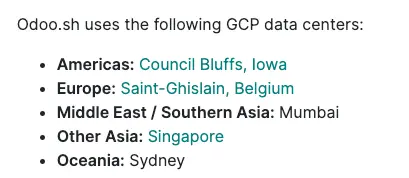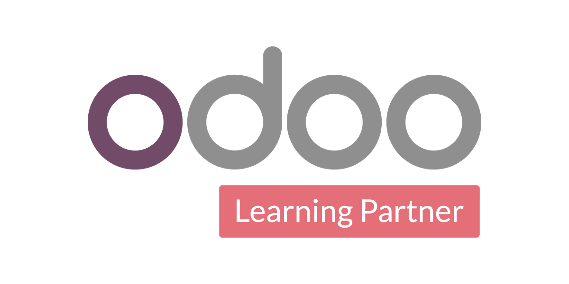In this final analysis, where we compare accounting platforms alongside Odoo, we thoroughly explore the differences of Odoo and MYOB. This exploration delves deep into the features, user experiences, and overall capabilities of both systems, drawing insights from their official websites and user reviews on TrustRadius.
Overview
Odoo Accounting is part of the Odoo suite, a comprehensive open-source enterprise resource planning (ERP) system that includes CRM, eCommerce, accounting, inventory, point of sale, project management, etc. Odoo's modular design allows businesses to start with what they need and add more features as they grow.
MYOB (Mind Your Own Business) is a popular accounting software in Australia and New Zealand, designed to help businesses manage their finances, including invoicing, expenses, GST, payroll, and more. It offers both cloud-based and desktop solutions, catering to a wide range of business needs
Features Comparison
User Interface and Usability
Odoo Accounting boasts a modern, web-based interface that integrates seamlessly with other Odoo apps. This integration provides a unified experience but may require a learning curve for users not familiar with ERP systems.
MYOB, on the other hand, offers a more traditional accounting software experience. Its interface is user-friendly, making it easier for new users to navigate. The software provides clear, straightforward access to all its features, from payroll to invoicing and reporting.
Accounting Features
Odoo Accounting offers a wide array of features, including:
- Automated bank feeds
- Invoicing and billing
- Expense tracking
- Multi-currency and multi-company support
- Customisable reports
- Integration with other Odoo apps for a comprehensive ERP solution
MYOB also provides a robust set of accounting features, such as:
- Easy tax management and GST calculations
- Payroll management
- Invoice and quote creation
- Detailed financial reporting
- Time billing for service-based businesses
Scalability
When considering long-term business growth, scalability becomes a crucial factor in selecting accounting software.
Odoo Accounting is inherently scalable, thanks to its modular structure. As your business grows, you can easily add more users and integrate additional Odoo apps to expand its functionality. This makes Odoo a suitable option for businesses planning to scale up their operations and requiring a system that can grow with them.
MYOB, while offering robust accounting features, may not be as scalable in the same sense as Odoo. It is designed to cater to small to medium-sized businesses, and while it offers different plans to accommodate growth, the scope for expanding its functionality beyond accounting and finance is limited compared to a full ERP system like Odoo.
Support and Community
Both Odoo and MYOB offer support, but their approaches and the breadth of available resources differ.
Odoo benefits from a large, active community of users and developers, given its open-source nature. This community is a valuable resource for troubleshooting, custom modules, and advice. Odoo also offers professional support and implementation services through its network of partners, which can be a significant advantage for businesses requiring customised solutions.
MYOB provides dedicated support through various channels, including phone, email, and an extensive online help centre. The company has a long history in Australia and New Zealand, ensuring that its support team is well-versed in the specific needs and regulatory requirements of businesses in these regions.
Security
In the digital age, data security is a top priority for businesses of all sizes. Both Odoo and MYOB take security seriously, but their approaches and infrastructure may differ.
Odoo hosts its cloud-based services on secure servers and follows industry-standard practices to protect user data. Being an open-source platform, it also benefits from the scrutiny of a large developer community that can quickly identify and address security vulnerabilities.

MYOB has a strong focus on security, especially given its emphasis on financial data. The company employs advanced encryption and security measures to protect user information, and its cloud-based services ensure that data is backed up and accessible securely from anywhere. MYOB uses Microsoft Azure and Amazon AWS Data centres in various locations including Sydney.
Integration with Other Systems
One aspect that significantly differentiates Odoo Accounting and MYOB is their ability to integrate with other systems. This factor is crucial for businesses looking for a holistic approach to managing their operations beyond just accounting.
Odoo Accounting excels in this area due to its ERP nature. It can seamlessly integrate with other Odoo apps, covering areas such as CRM, inventory management, eCommerce, and more. This integration capability ensures that all business operations are interconnected, providing real-time data across all departments. Furthermore, Odoo's API allows for integration with external systems, making it a versatile choice for businesses that use other software tools.
MYOB, while offering integration capabilities with various third-party apps and services, is primarily focused on accounting and financial management. Its integration options include eCommerce platforms, CRM systems, and other productivity tools. However, the scope and depth of integration might not be as extensive as with Odoo, given MYOB's focus on accounting solutions.
Mobile Accessibility
In today's fast-paced business environment, mobile accessibility is another critical factor to consider. Both Odoo and MYOB offer mobile applications, but their functionalities may vary.
Odoo provides a mobile app that allows users to access a wide range of features, not just limited to accounting. This means users can manage different aspects of their business on the go, from sales and CRM to inventory and more, depending on the Odoo apps they use.
MYOB also offers a mobile app, primarily focused on accounting tasks. Users can manage invoices, expenses, and view financial reports directly from their mobile devices. This feature is particularly useful for small business owners who need to keep track of their finances while away from the office.
Cost Consideration
Cost is always a significant consideration for businesses when choosing software. Both Odoo and MYOB have pricing models that cater to different business sizes and needs, but the overall investment can vary based on several factors.
Odoo's pricing structure is now based on an all-inclusive model, charging per user per month for access to all apps. This simplifies billing for businesses, allowing full access to Odoo's suite of applications for a single fee per user, each month. While this approach offers simplicity and scalability, it's important for businesses to consider their growth trajectory, as costs will increase with each additional user.
MYOB offers different pricing plans based on the features and the level of support required. There are options for small businesses that need basic accounting functionalities, as well as more comprehensive plans for larger businesses. MYOB's pricing is straightforward, making it easier for businesses to budget for their accounting software needs.
User Reviews and Satisfaction
According to user reviews on TrustRadius, Odoo Accounting users appreciate its integration capabilities and the breadth of features available. However, some note that the learning curve can be steep for those not familiar with ERP systems.
MYOB users often highlight its ease of use and robust support for Australian and New Zealand tax systems. Some users mention that the interface could be updated to be more modern, but overall, the software is well-regarded for its reliability and comprehensive features.
Choosing between Odoo Accounting and MYOB ultimately depends on your business's specific needs. If you're looking for a highly customisable solution that can grow with your business and integrate with other business processes, Odoo Accounting might be the way to go. On the other hand, if your focus is on straightforward accounting software with strong support for local tax systems, MYOB could be a better fit.
Both platforms offer robust features and capabilities, but the best choice will depend on your business size, industry, and whether you value integration with other business processes or prefer a dedicated accounting solution.


Odoo vs MYOB: Which is the Best for Your Business?